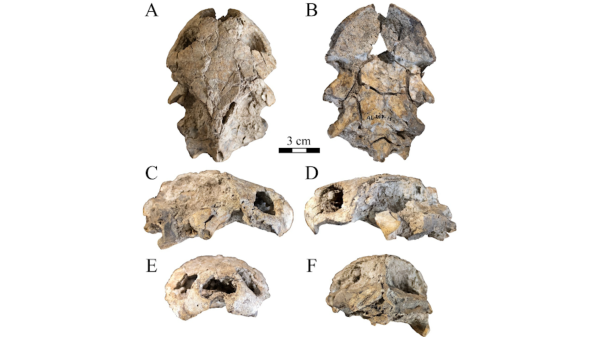ASU faculty to design visual AI curriculum for middle school students

Photo credit: Digital Culture Summer Institute
Suren Jayasuriya, an Arizona State University professor jointly appointed with the School of Arts, Media and Engineering and the School of Electrical, Computer and Energy Engineering, and Kimberlee Swisher, ASU lecturer and co-founder of the Digital Culture Summer Institute, have been awarded the NSF Innovative Technology Experiences for Students and Teachers (ITEST) grant.
The NSF ITEST grant supports projects that build understandings of practices, program elements and processes contributing to increasing students’ knowledge and interests in science, technology and information, and communication technologies.
The grant will support the design and development of curriculums that will enable the professional development of middle school teachers and engage students in learning visual artificial intelligence through working with hands-on technology and interactive lesson plans.
The project will be completed in partnership with Wendy Barnard (College Research and Evaluation Services Team, ASU), Terri Kurz (Mary Lou Fulton Teachers College, ASU), Ramana Pidaparti (College of Engineering, University of Georgia), John Mativo (Department of Career and Information Studies, University of Georgia) and Dawn Robinson (Department of Sociology, University of Georgia) over the course of four years.
According to Jayasuriya, the following three summers will be spent conducting four-week workshops where middle school teachers will co-create technology modules with researchers to then deploy in short courses and lessons with middle school students (sixth to eighth grade), with the goal of bringing these lesson plans into the classroom for the academic year.
The program will use computational cameras to integrate computer science, math and design thinking in teaching visual AI concepts while also drawing inspiration from media arts to enhance science learning experiences. Learning technology modules to be developed include color and lighting for physics-based vision to understand the interface between the physical world and image sensing; image classification pipelines that teach the basics of visual feature extraction, machine learning classification, and the collection and training of data; and use of machine learning for synthetically-generated visual media.
“In addition, we have a dedicated research component where we will study the factors underlying learning these new technological topics,” Jayasuriya said. “We are bringing a team of education and sociology researchers to explore these questions, and will write up any findings in education research journals and conferences.”
The proposed curriculum will also be implemented at the Digital Culture Summer Institute hosted by the School of Arts, Media and Engineering every summer. Swisher explained the main objective of the summer institute is to help provide grade schoolers a point of entry into STEM practices paired with the arts and humanities.
“Our hope is that students who have lived in disciplinary silos and who have already built identities for themselves as ‘not an artist’ or ‘not an engineer’ can start to break down those notions,” Swisher said.
A major focus of this project is to allow students from underrepresented backgrounds the ability to be exposed to arts and the humanities and STEM practices. Jayasuriya and Swisher explained there are various barriers these students face and why the interdisciplinary learning approach at the Digital Cultural Summer Institute is a crucial piece of this project.
“At DCSI we have a focus on project-based learning, and we believe that critical skills like computational thinking, collaboration, innovation and information literacy can be taught in a highly effective manner by using aesthetic challenges as motivation,” Swisher said. “When students are inspired by something and want to make it themselves, they imagine possibilities and start to ask questions. Then, as instructors, we are able to successfully help the students gain the skills they need to answer the technical questions of how, because the students have already answered the why.”
The project will continue over the next four years with the University of Georgia in the hope of positively engaging the community and increasing the education of STEM practices and arts and humanities in middle school curriculums around the states.
More Science and technology

New research by ASU paleoanthropologists: 2 ancient human ancestors were neighbors
In 2009, scientists found eight bones from the foot of an ancient human ancestor within layers of million-year-old sediment in…

When facts aren’t enough
In the age of viral headlines and endless scrolling, misinformation travels faster than the truth. Even careful readers can be…

Scientists discover new turtle that lived alongside 'Lucy' species
Shell pieces and a rare skull of a 3-million-year-old freshwater turtle are providing scientists at Arizona State University with…